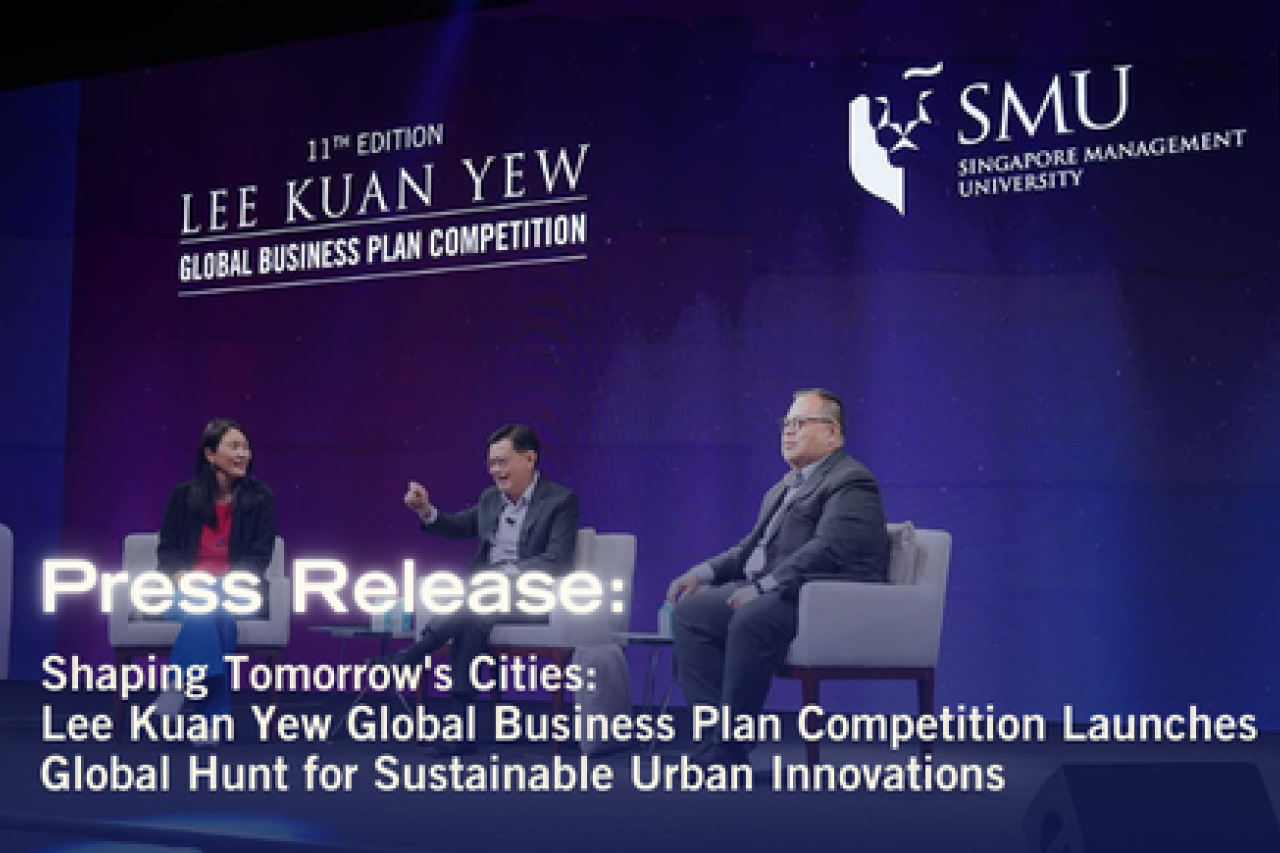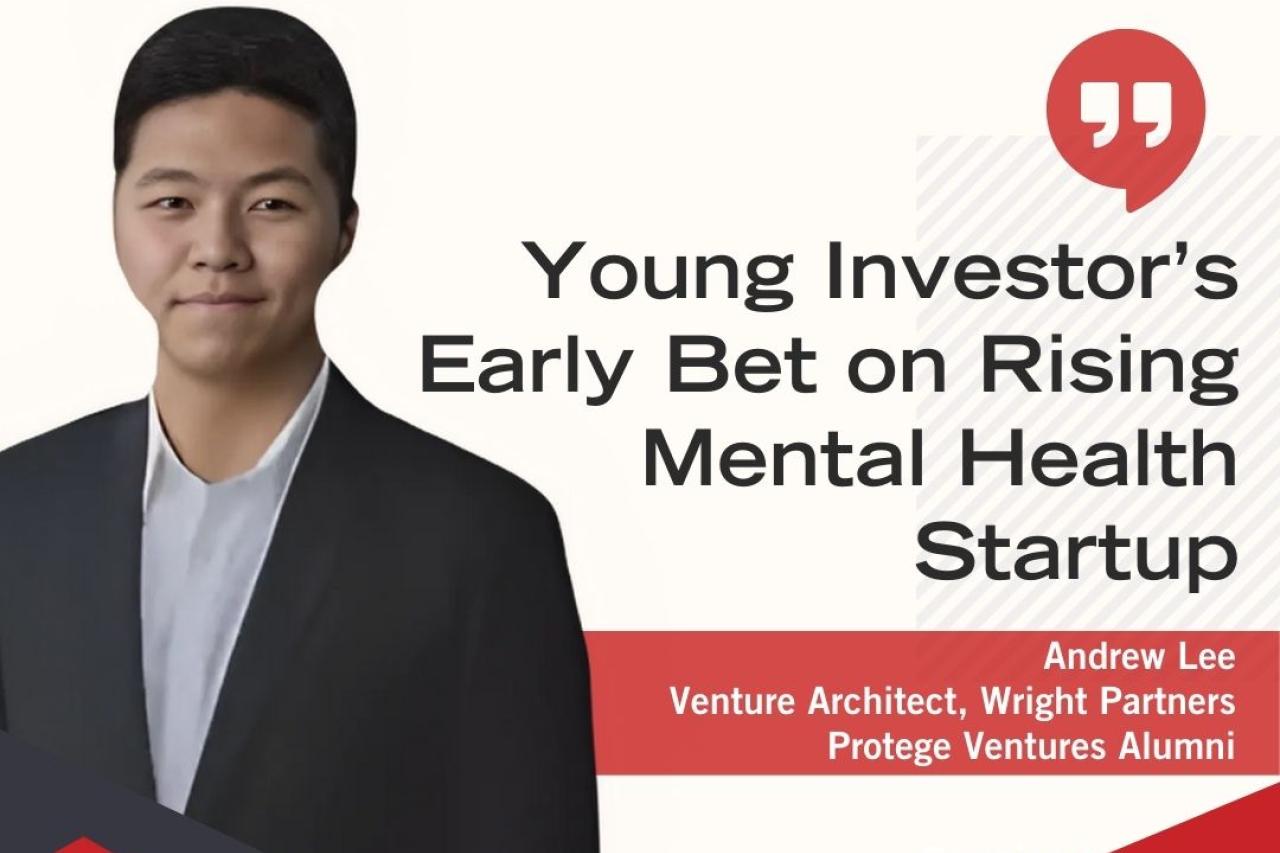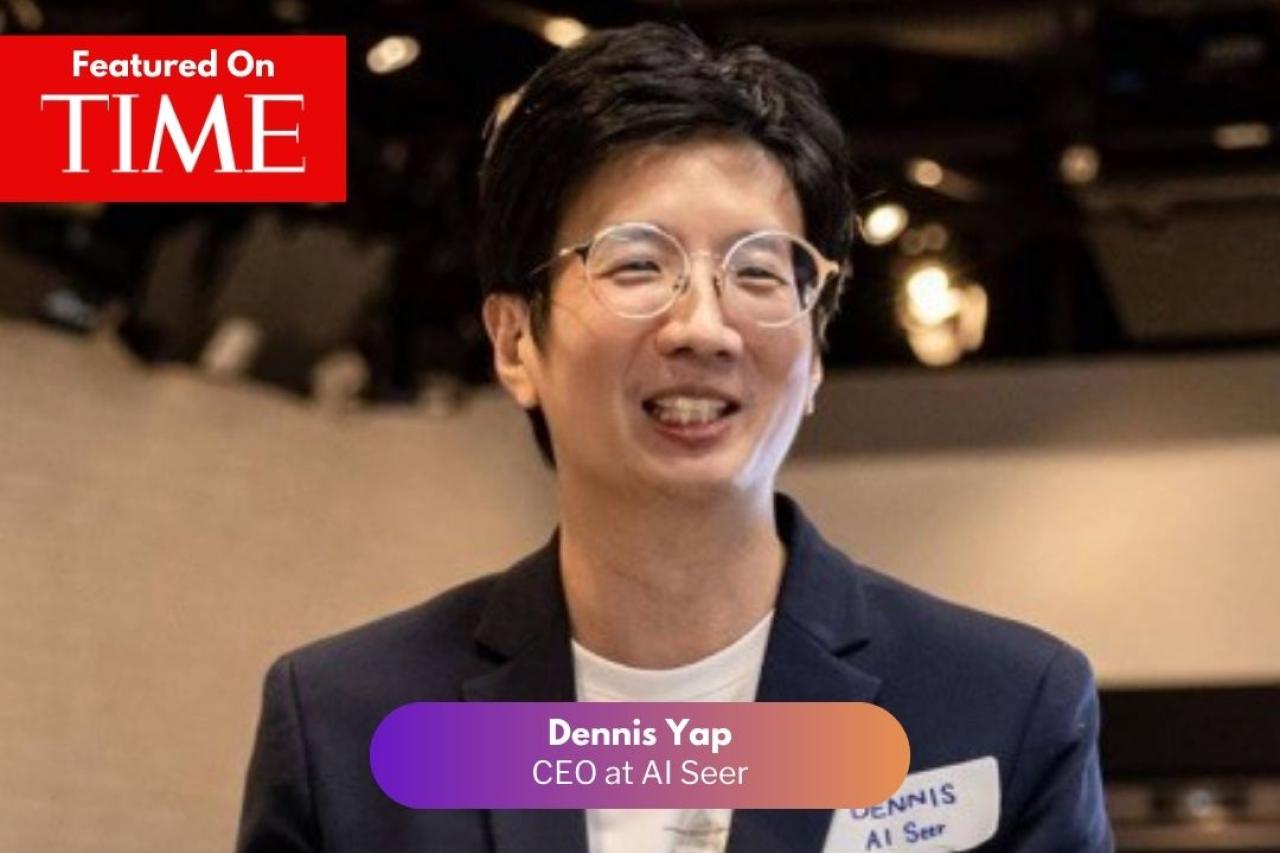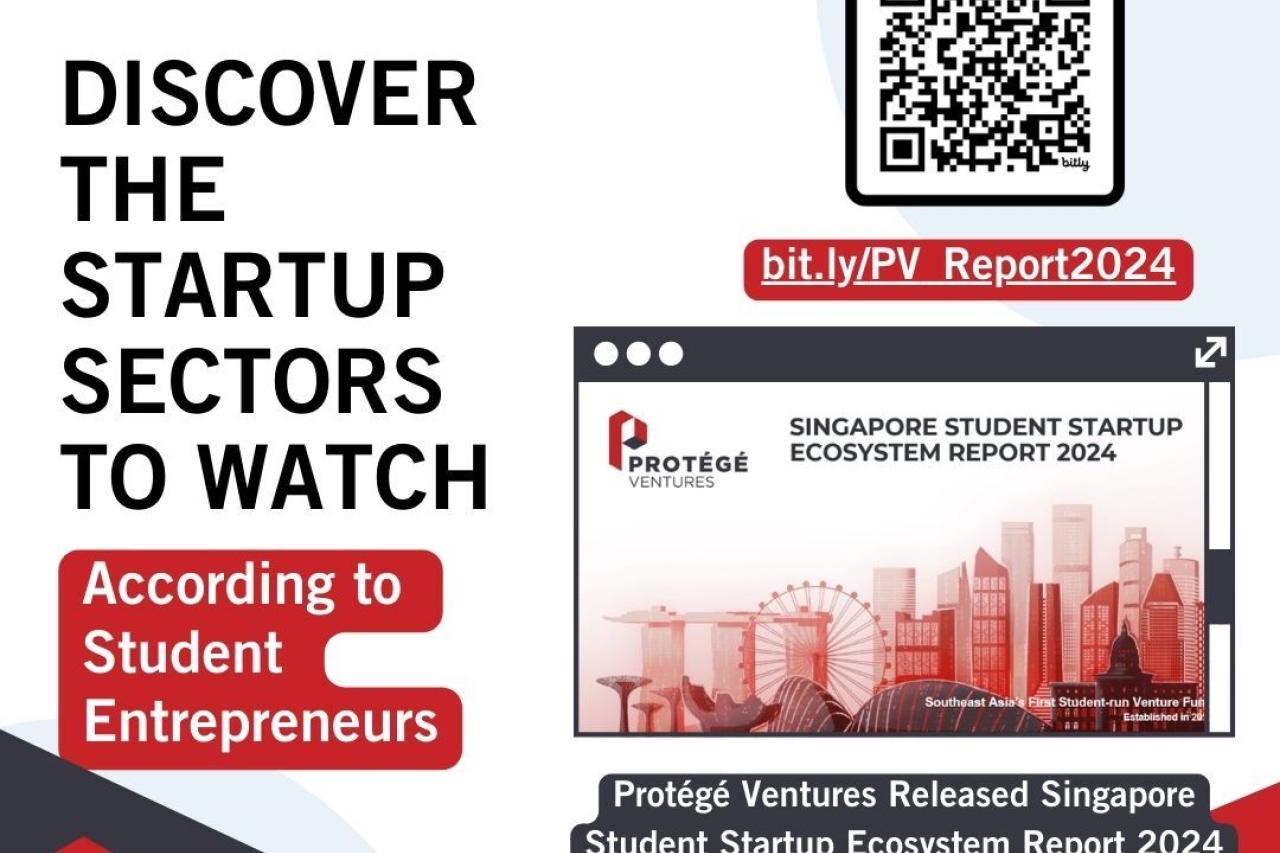GII Feature: From Internship to a Career in AI: An SMU Alumnus’ Journey to Becoming a Data Scientist
Monday Oct 28,2024 | IIE News
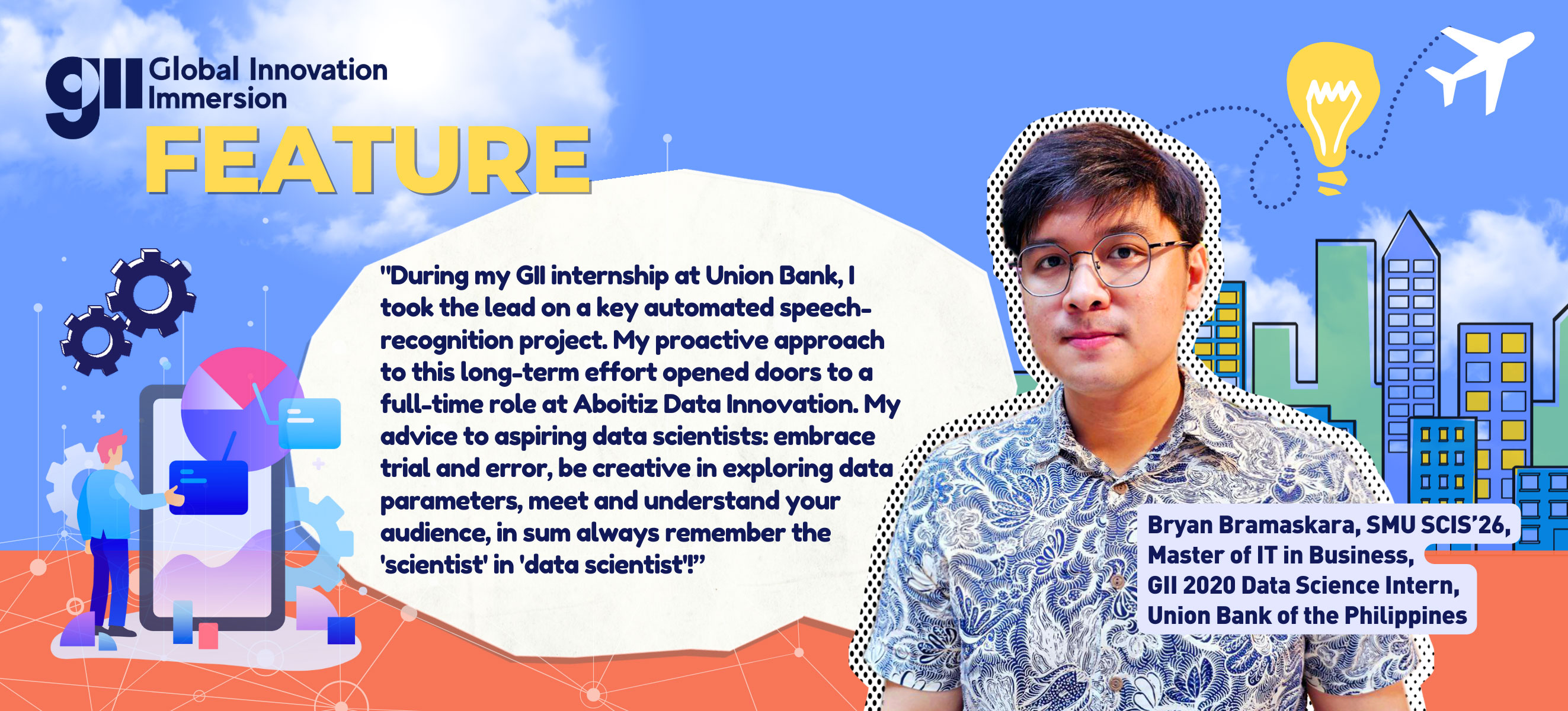
The Global Innovation Immersion (GII) Programme is now OPEN FOR APPLICATIONS for the 2025 Internships. APPLY HERE!
[As Featured on SMU Blog]
As a data scientist, Bryan Bramaskara appreciates SMU’s real-world approach to teaching. The Information Systems graduate, who returned to SMU to pursue his postgraduate studies, recounts his experience at SMU. A significant part of that journey was his internship through the Global Innovation Immersion (GII) programme, which helped him land a full-time job in data science.
With technology in the artificial intelligence (AI) space rapidly evolving, machine learning is increasingly at the heart of many game-changing projects. In recent years, AI and data science have emerged as key drivers of a new wave of technological breakthroughs.
One SMU graduate at the forefront of these developments is Bryan Bramaskara, who has returned to SMU School of Computing and Information Systems to pursue a Master of IT in Business.
We chat with him to learn more about his journey, the projects he has been working on, and how his experiences at SMU have supported his growth.
A poignant journey that started at SMU
For Bryan, a data scientist passionate about natural language processing (NLP), SMU’s Bachelor of Science in Information Systems programme provided him with the mindset, knowledge and skills needed to embark on a career in AI.
Modules such as “Machine Learning and Applications” were essential in equipping him with not only a theoretical understanding of machine learning algorithms, but also in developing an appreciation for real-life applications, such as speech recognition, which can be useful for enhancing phone customer service.
The programme’s project work component also exposed him to different machine learning models. This invaluable hands-on experience ignited his passion for NLP.
Bryan elaborates, “I value SMU's fast-paced, real-life scenario-based learning, which fosters skills in problem-solving, peer feedback, and collaboration.”
While data science may be theory-heavy, Bryan finds great merit in SMU's real-world approach to teaching. Reflecting on his classes with Professor Wang Zhaoxia, Associate Professor of Computer Science (Practice), he appreciates Prof Wang’s use of actual cases to deepen her students’ understanding of how theory translates to real-world applications.
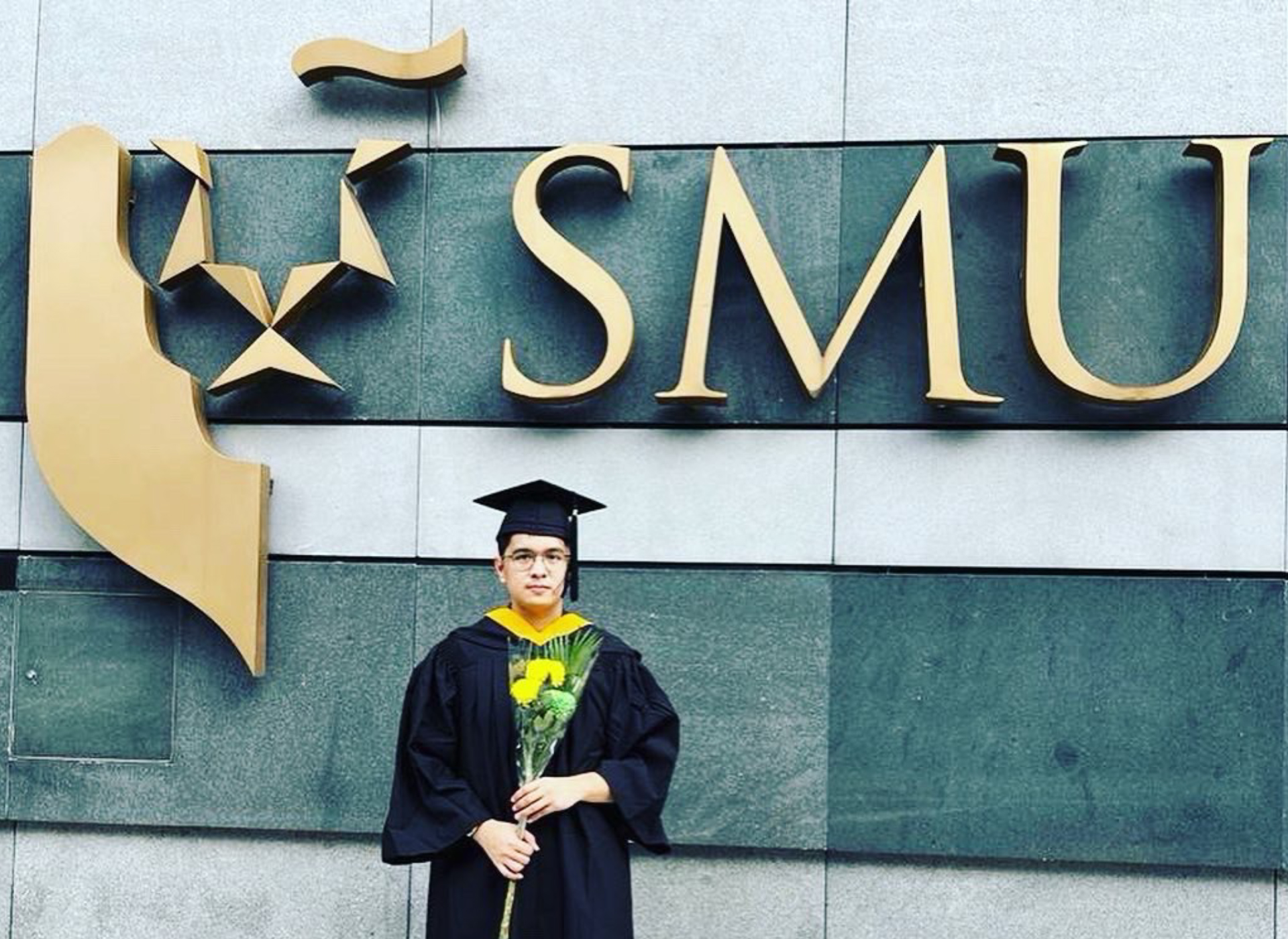
Bryan Bramaskara, SMU BSc IS Graduation Photo, 2022
From remote internship to full-time data scientist
Bryan’s time at SMU did more than set a strong foundation for his future career – it paved the way to his current role as a Data Scientist at Aboitiz Data Innovation.
His journey started with an internship through SMU’s Global Innovation Immersion (GII) programme, where Bryan worked on a voice recognition project at UnionBank of the Philippines from December 2020 to November 2021.
“Because of the pandemic, it was a remote, part-time internship, and one of the key projects I worked on was an automatic speech-recognition framework that utilises Azure models for the bank’s call centres,” he explains.
Upon his graduation, Bryan’s GII internship placement and his outstanding work on the voice recognition project paved the way for his full-time position at Aboitiz Data Innovation, a company under the same parent company as UnionBank – Aboitiz Group.
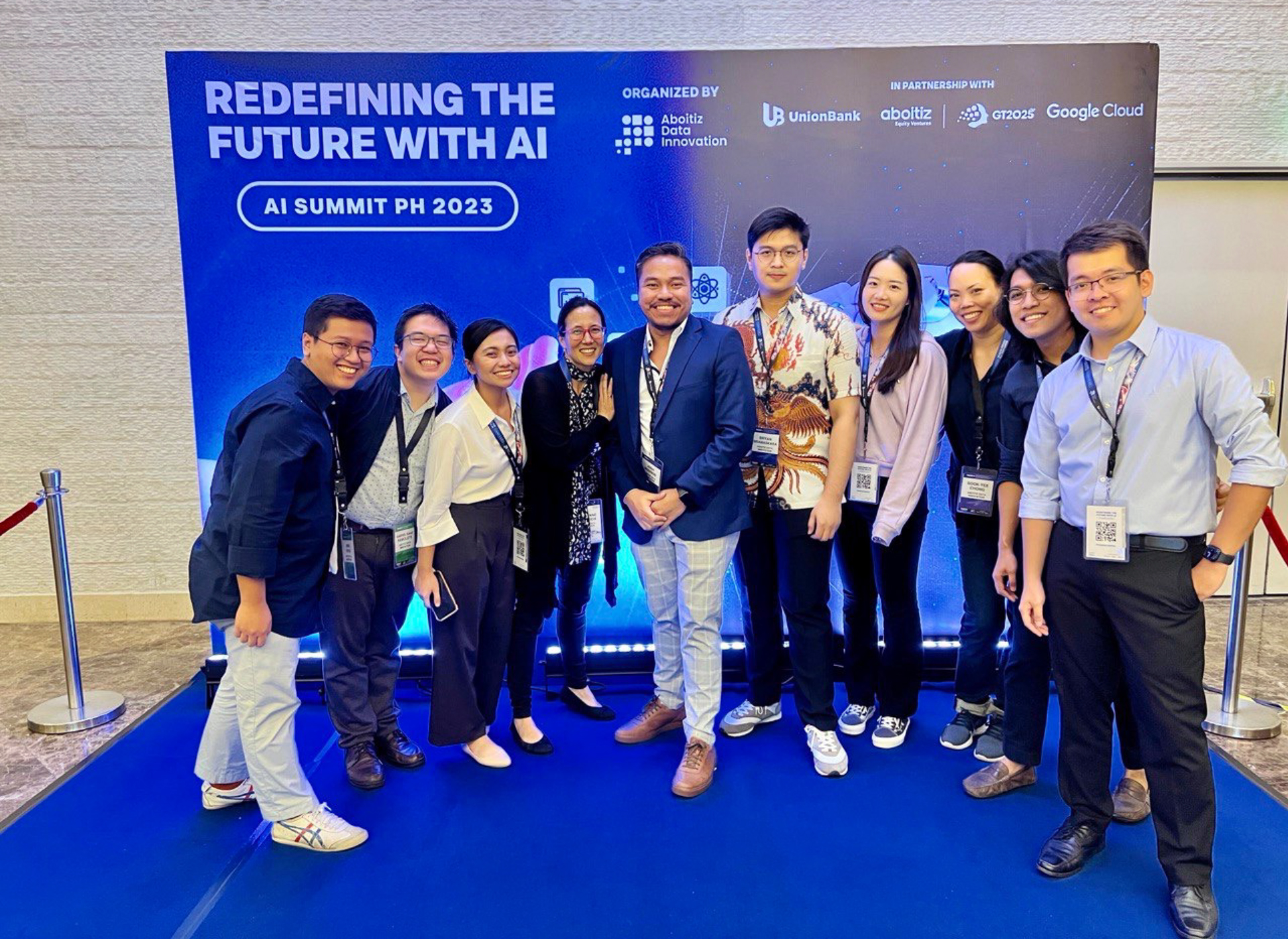
Bryan (5th from right) with his Aboitiz Data Innovation team at the Redefining the Future with AI Summit in the Philippines, showcasing their projects
What AI means for the future
With all the hype surrounding AI and its potential to reduce workloads by automating repetitive tasks – such as those in data science and analytics – one might assume that AI poses a looming threat to the livelihood of data scientists.
But Bryan firmly believes in AI’s complementary role in the field. “The reality is that AI will still need the human touch and guidance. Just like a data scientist, who gathers and transforms data into a format that machine learning algorithms can understand, humans will remain essential in guiding and training AI models for specific use cases before they can operate independently,” he explains.
If anything, Bryan sees recent trends in generative AI and large language models (LLMs) as exciting advancements.
“We can leverage these improvements to enhance our solutions and create a more user-friendly tone. While they may pose a threat in some aspects, using them positively can yield numerous benefits,” he remarks.
Nevertheless, he cautions that the technology is still relatively new, with limitations yet to be discovered. While data science requires a strong foundation in technical skills, Bryan emphasise the importance of developing one key soft skill for those aspiring to enter the field.
“Cultivate a trial-and-error mindset. Don’t restrict yourself to simply evaluating whether a variable improves your model. Instead, think creatively about other data parameters that could be useful,” he urges.
“The 'scientist' in 'data scientist' reflects the need for this experimental approach – so embrace that trial-and-error mindset.”

